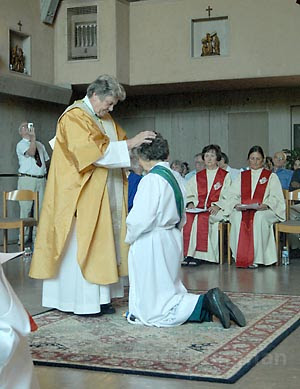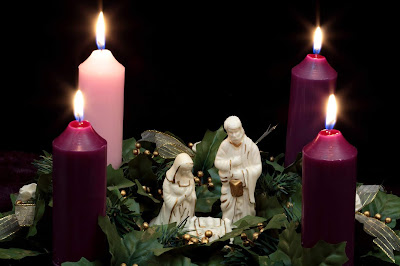There has been much debate, speculation, and downright
argument among the faithful about the possibility of women being ordained
deacons in the Catholic Church since Pope Francis took up that question back in
2016. Both hope and fear are through the roof as we wait for the definitive
answer from our Holy Father.
I have read many articles, commentaries, and opinions on
this matter. As with most things in this day and age the feelings are strong
and all over the board. I, too, have found myself with strong feelings on this
matter. And then I noticed the question that no one has bothered to ask and
that changed the way I will respond to this subject.
What does God want for his Church?
In the arguing back and forth I have yet to see either side
ask what God wants for his Church.
So how can we possibly know what God wants in this matter?
For me that is simple.
Jesus selected twelve men whom he set apart to be the
leaders of the Church he himself established. He gave to these men all of his
power and authority to act in his name and to lead his Church on earth. Those
men ordained other men to assist and eventually replace them in their work.
These men became the first bishops and formed the Magisterium. They are the
only ones who have been given the authority to speak for Jesus.
We believe as Catholics that the Pope speaks infallibly,
that is without error, when speaking on matters of faith and morals, from the
chair of Peter, when in unison with the Magisterium. How will we know what God’s
will is on the matter of ordaining women to the Permanent Diaconate? We will be
given the answer by the Pope only after a long and prayerful deliberation with
his Magisterium.
When that answer comes it is a guarantee that one side or
the other, or even both sides, will not be very accepting of the answer given.
I am positive that we will see every kind of low and despicable behavior come
forth from those who believe that the Pope got it wrong.
Each Mass we pray in unison the Lord’s Prayer. We pray it
twice a day when we pray the Liturgy of the Hours or Christian Prayer. There is
one petition in that prayer many of us, including myself, seem to say without
thought.
“Thy will be done, on earth as it is in heaven.”
God communicates his will through those he has chosen and
given his authority to. For the Roman Catholic Church and those in union with
her that would be the Pope and the Magisterium. My opinion on this or any
matter of faith and morals simply does not matter. I am welcome to have an
opinion and to question, to seek understanding, but when that opinion differs
from that of the Church it is wrong. When we hold an opinion contrary to the
official teaching of the Church we don’t disagree with the Church or the Pope
or the bishops. We disagree with Christ himself.
If the Pope were to announce that women are to be ordained Permanent
Deacons I will be among the first to welcome them with open arms and be
grateful for the service they give to God’s people. The world sure could use
more people with a servant’s heart.
At the beginning of creation God made known his
plan of salvation and redemption of the human kind to the angels by becoming
human himself. This drove a multitude of the heavenly host to rebel against God
for they felt slighted God so loved man. How many will turn their backs on
their vocations if he calls women to the diaconate? How many will turn their
backs on the Church if he doesn’t?






